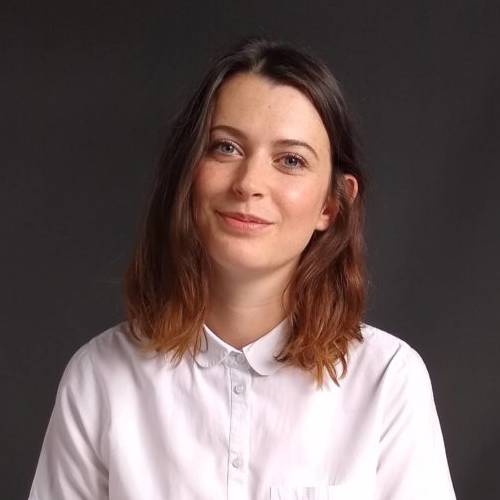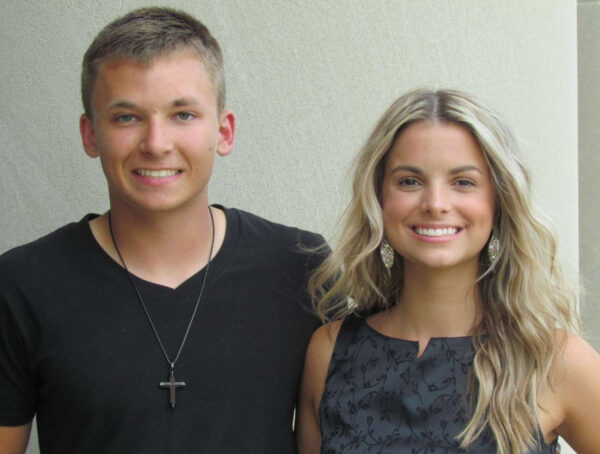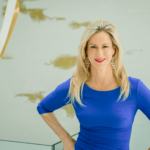Founder@ Interview
Interview with Amy Williams

Hi, can you tell us who are you and about how your business got started?
I am Amy Williams, and I am the founder at Good-Loop. In short Good-Loop converts ad money into free charity donations, whilst delivering 50-75% higher engagement for advertisers.
The concept of Good-Loop started when I was volunteering with a charity in Buenos Aires, I saw first-hand how difficult it was for them to fundraise, and that every penny counted. In contrast, I previously worked at Ogilvy, a global advertising agency, so knew how much money there is in the industry (last year £9.6 billion was spent on digital advertising in the UK alone.) I thought, what if we could re-design this system to make advertising a force for good in the world? Armed with this vision, my experience in adland, and some powerpoint slides, I reached out to the startup community online, literally posted a request for a co-founder, and was connected with entrepreneur and adtech software developer Daniel Winterstein.
Wow, such a socially good cause and a unique take on the traditional advertising industry, so how does Good-Loop achieve this?
In 2019, UK digital advertisers will spend almost £15 billion on digital ads. All this money tends to simply pass from one large corporation to another, we wanted to re-design this system to make advertising a force for good. At Good-Loop, we achieve this via our ethical ad player, we connect consumers and companies online in a trustworthy and positive way – harnessing the value of peoples’ attention and data and use it collectively, to make meaningful social impact in the world: every time a consumer chooses to watch 15 seconds or more of an ad via our player, the advertiser will make a donation on their behalf to a chosen charity.
Good-Loop strives to make ethical behaviour both easier for consumers and more profitable for companies. Our ethical ad platform brings purpose and profit into harmony – it is at the core of a business model that delivers better ROI for advertisers whilst using that same ad spend to fund solutions to the social, environmental and cultural issues that are most challenging today. We call it Yin Yang, our clients call it win-win. We are currently growing at 300+ per cent year on year, and since we launched in 2016 we have raised over £0.5M for good causes and are on track to raise over £2M by 2021.
“Don’t fear failure, embrace it!”
Amy Williams
So how did you get from an idea to now being on track to raising millions for good causes, what’s the story behind Good-Loop’s success?
It really started from when I found Daniel Winterstein – who became our co-founder – as while I had the idea and the dream, he had the tech expertise that could make it all a reality. And he believed in the idea, and in me.
The story behind our success quite simply is that we take existing advertising spend, and convert it into a) better consumer engagement for the same money spent elsewhere – 75% better in many cases, because of our ethical slant which consumers respond well to and b) we deliver ‘free’ charitable donations that consumers get to direct to a chosen charity, in return for 15 seconds of their attention.
It really is a win-win, no-one loses. You see, attention and data are the currencies with which we pay for the ‘free’ internet. But the value exchange at the heart of this economy is broken. If we are to preserve a free and universally accessible internet, we need to create a better system.
The drive for more effective online marketing has led to annoying, interruptive adverts and pervasive ‘surveillance capitalism’ where personal data is harvested and used in opaque ways. This has worrying abuses and events such as the Cambridge Analytica scandal that have rightly eroded public trust. Meanwhile, due to all-time low levels of trust in advertising, consumers are tuning out brands’ efforts to reach them by blocking or at least skipping online ads.
More than 12 million people in the UK will block ads on a personal computer or smartphone this year. That’s a quarter of all internet users, who are now opting for the “thanks but no thanks” approach – thwarting the efforts of global advertisers and costing online publishers millions in lost ad revenue. At the same time, more and more people expect brands to take a stance on social or environmental issues – and to follow through with tangible financial support for organisations tackling those issues.
To earn back trust, deliver on corporate purpose and keep shareholders happy, online advertisers need to connect with consumers in safer, more respectful and more positive digital environments and walk the talk when it comes to ‘purpose’ by demonstrating their financial commitment to causes in a transparent, measurable manner. We address these challenges by connecting consumers and companies online in a trustworthy, positive and more effective way – harnessing the value of attention and data and using it collectively, to make meaningful social impact in the world whilst improving brands’ return on marketing investment .
Such an amazing story, I’m sure you’ve had challenges along the way could you share some and how you overcame them?
I have learned to embrace failure because when you do that it can open up some wonderful opportunities. Yes, rejection sucks but it also forces you to change direction. When I casually experienced my quarter-life crisis in Argentina, I actually thought that my days of failure (eg rejection from Oxbridge) were behind me. Particularly since I had vigorously applied to 38 graduate scheme applications before going travelling. But, in the end, I was rejected by all but one. (That ‘one’ was Ogilvy and as luck would have it, it was in fact the only yes I needed.)
Little did I know though, that failure was just getting started with me. I was volunteering in a soup kitchen whilst also working on this crazy business idea where you give advertising money to charity. A company in London said they’d be interested in my idea, so I flew home to meet them. I excitedly emailed. Then I emailed again. Then I called. And emailed again. They blanked me.
They had changed their mind about the business deal and to be honest, it made me wonder if I should too. They were industry experts, telling me this wasn’t worth pursuing. It was too risky, I was too inexperienced, it’d never make money. At that moment I was so close to quitting.
I felt as if failure itself had a personal vendetta against me. But then I met a man called Daniel, on an online forum in fact. He’s a software developer, with a PhD in AI and a team of coders up in Edinburgh. And he loved my idea. So I flew up to Scotland to meet a strange man I met on the internet, and as luck would have it, he wasn’t a complete weirdo.
So, on the 27th Oct 2016, we founded a company together. We called it Good-Loop. And today, three years later, we’ve given over half a million pounds to charitable organizations around the world. I am genuinely so proud of what we’ve achieved.
You’ve had an incredible journey over the last 3 years, what advice would you share to other businesses and startups?
Harness the power of storytelling. I’ve learned that as a small business, our story is everything. It’s not some abstract mission we write on the wall, it goes right to the core of who we are, why we founded our company and what we’re trying to achieve. Telling our story on an ongoing basis has been an important part of getting other people to join our journey and I’ve recruited some talented individuals who want to be a part of the story too.
Talk about why, not what. Before starting Good-Loop, I’d never worked in sales. I had no idea how to close a deal and at the beginning I struck out a lot. But I had a brilliant advisor who once told me that selling isn’t ‘here’s what our product can do’, it’s ‘here’s what you can do with our product’. In other words, no one cares about 16GB of storage but everyone wants 1,000 songs in their pocket. This applies to social and non-social businesses, but it’s great advice wherever you work.
Have a big vision and tiny plans. As a founder, I feel that I am constantly bouncing, or perhaps simultaneously co-existing, in the world of big, hairy, audacious goals and the immediate next email. In sales or investor meetings, for example, it’s a balancing act between getting people to give me money for the product I have right now and also buying into Good-Loop’s ‘big vision’ of using ad money to solve the world’s problems. I have learned that you have to be very comfortable existing in both of these worlds and you always need to have at least a loose idea of how the two connect via smaller, digestible next steps.
Thank you for sharing such insightful advice. Lastly what three tools make your business run better?
Trello is fantastic for us as a project management tool. Getting an ad campaign live involves tons of moving parts, and this means we very rarely drop the ball.
Better Proposals is a proposal and eSignature tool that had made getting projects signed off a quick, easy and pain free experience – no printing and scanning, so eco friendly, while making life easy!
More boringly, we rely on Salesforce for keeping tabs on our potential clients and prospects, which has really helped us forecast our revenue more accurately and plan around dependable numbers.
Have an inspiring founder story?
Every entrepreneur’s journey is unique and powerful.
Your story of perseverance and success could be the spark that ignites the next generation of world-changing ideas. By sharing your experiences, you’re not just telling a story – you’re lighting a path for others to follow, dream, and achieve.
Disclaimer:
The views, thoughts, information, and opinions expressed in the text, videos, images belong solely to those of the individuals involved, and do not necessarily represent those of Founderat.com and its corporate owners, employees, organization, committee, or other group or individuals.





![[Company Name]'s Founder Stories](/wp-content/uploads/2024/10/Fonuder@-Partners-01a-150x150.png)


















